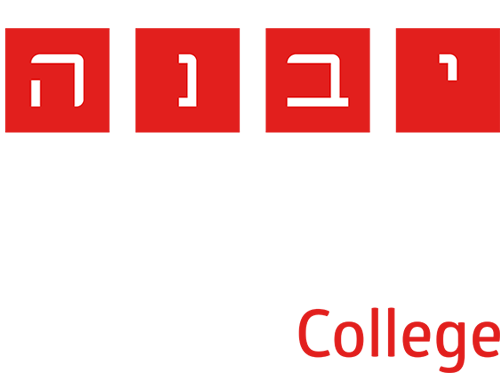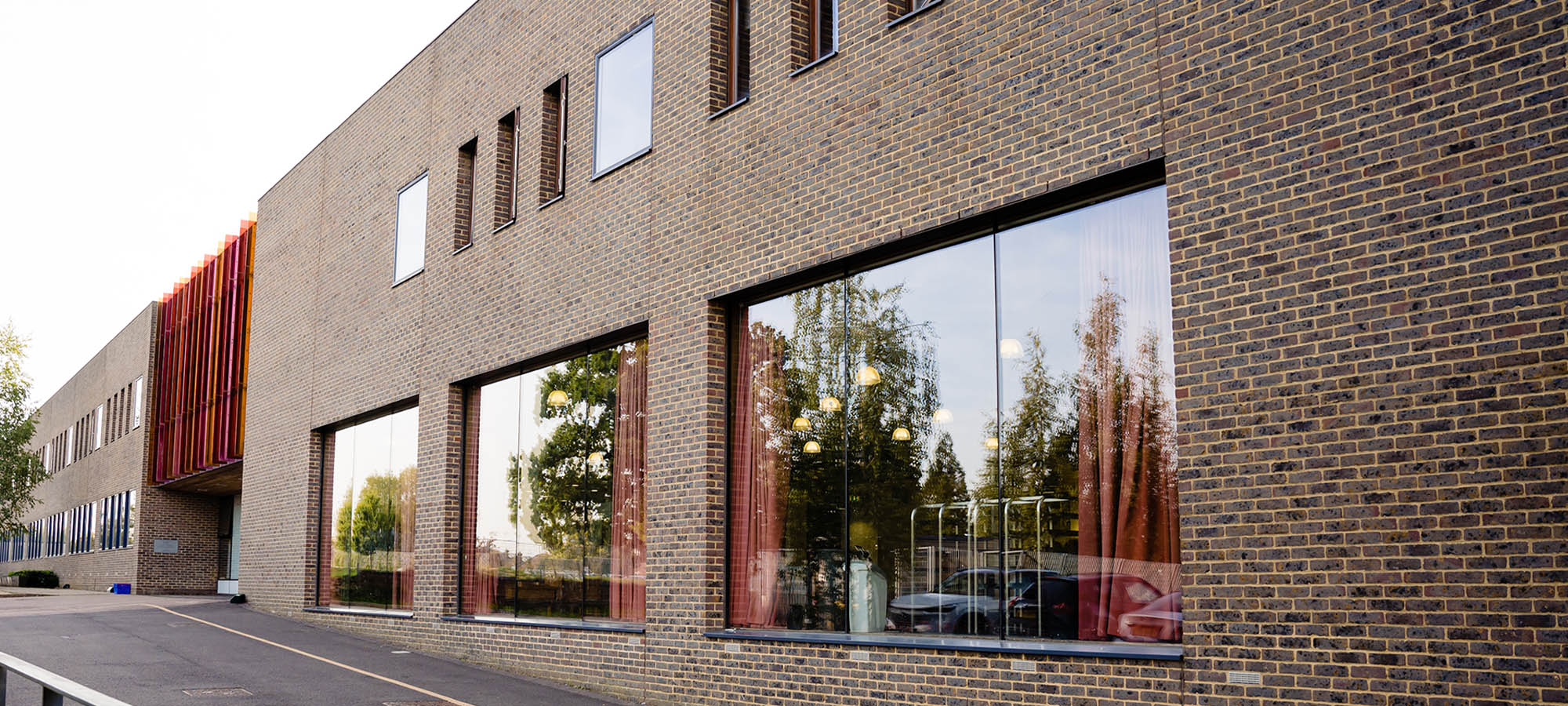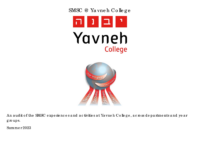At Yavneh College, we are committed to promoting British Values in an effort to ensure that our pupils to grow as individuals who positively contribute to the local, national and global communities in which they interact and live.
British Values and Social, Moral, Spiritual and Cultural Development at Yavneh College
At Yavneh College, we have a thoughtful and wide ranging promotion of pupils’ Spiritual, Moral and Social and Cultural development and within this the promotion of British values. Embracing British values is achieved through both our curriculum and the school’s ethos. Consequently, one of the five tenets of our school vision is:
Creating a safe, nurturing and supportive school with graduates who reflect British values, care for others and are proud to play a meaningful role within the communities to which they belong.
These values are also reflected in our embrace of the Yavneh Way, four simple words that set out the manner in which we expect members for the school community to treat people, with politeness, kindness, courtesy and respect, all crucial in fulfilling the Yavneh College school motto of “a world built on kindness.”
Yavneh College is committed to:
- Ensuring that its pupils develop spiritually in their own believes while showing respect and understanding of others
- Promoting British Values through our SMSC. This permeates through the school’s curriculum as well as through the many dedicated activities which champion community engagement and respect for others
- Developing pupils who know right from wrong, who actively make good choices and who contribute to the community in a variety of different ways
- Encouraging its pupils to value and support others; to value democracy and to participate and contribute to society as a result
- Providing as many opportunities as possible for pupils to explore their own culture while appreciating and respecting the many cultures that make up modern Britain today*. We are profoundly aware that as a faith school, it is vital that our pupils have exposure to a wide experience beyond their faith community during which these concepts are further realised.
| Practice Guidance | Evidence |
| SPIRITUAL | |
| – Ability to be reflective about their own beliefs (religious or otherwise) and perspective on life. – Knowledge of, and respect for, different people’s faiths, feelings and values. – Sense of enjoyment and fascination in learning about themselves, others and the world around them. – Use of imagination and creativity in their learning. – Willingness to reflect on their experiences. |
– Daily Tefillah (prayers) – Rosh Hashanah, Yom Kippur, Sukkot and Pesach special assemblies – BMT (advanced Jewish Studies programme) – Yahadut (Informal Sixth Form Jewish Studies) – Jewish Studies (Key Stage 3) – Religious Studies (iGCSE and A Level) – Yom Hashoah (Holocaust Memorial Day) programme – Yom Hazikarin (Israel Remembrance Day) programme – Yom Haatzmaut (Israel Independence Day) programme – Yom Iyun (day of additional Jewish learning for BMT students) – Purim programme – Channukah programme – School Sukkah (and associated activities/events e.g. Sixth Form Sukkah Party) – School wide responses to world events/crises (Ukraine, Syrian refugee crisis) – Displays around school (corridors, reception area, classroom) – YCIT (Yavneh College Israel trip) – Poland trip (Year 12) and Reflection Evening – Shabbatonim (weekends) – “Lunch and Learn” (weekly) – Alan Senitt Community Leadership programme – The Faith and Belief Forum Linking Programme – Interfaith Week (November) – Growth Mindset (Schemes of Learning, Form Time) – Enrichment programme (see departmental SMSC audit) – Sixth Form societies – Extracurricular clubs – Trips/Visits – Guest speakers – EPQ (Sixth Form) – PSHE curriculum – Subject(s) curriculum – see departmental SMSC audit and Schemes of Learning |
| MORAL | |
| – Ability to be recognise the difference between right and wrong, readily applying this understanding in their own lives and, in so doing, respecting the civil and criminal law of England. – Understanding of the consequences of their behaviour and actions – Interest in investigating and offering reasoned views about moral and ethical issues and being able to understand and appreciate the viewpoints of others on these issues. |
– Behaviour Policy (ladder of rewards/consequences) – Behaviour expectation PowerPoint (shown at the start of each term) – Anti-Bullying Policy – House Point system – Positive House Point display (digital noticeboard) – Home School Agreement (students) – Parent Code of Conduct – Sixth Form Contract (students) – Year 7 and Year 12 Transition programmes – E Safety (Computing) – Pupil of the month displays (department display boards) – Annual cyber security assembly run by Hertfordshire Police (Year 7) – “Magistrates in the Community” assembly run by local magistrate (Year 9) – Attendance award(s) – Celebration assemblies – Key Stage 4 and 5 Prize Day (December) – Remembrance Week assemblies and displays (November) – Mitzvah Week (November) – GiveBack volunteering/mentoring programme (Sixth Form) – Jewish Leadership Team (School Council) – Am Echad (Sixth Form charity committee) – LGBTQ+ Society – Kavod (Respect) Committee (Year 12/13 students) – Eco Committee – “Knives not Lives” assemblies (Hertfordshire Police) – “Gamcare” assemblies (dangers of compulsive gambling for Key Stage 4/Key Stage 5) – School Prefects (Senior, House Captains, Subject) – Debate Societies (Sixth Form and Key Stage 3/Key Stage 4) – Weekly assemblies (Heads of Year) – Form Time programme (Tutors) – Middot (“Be Your Best Self”) Programme – PSHE curriculum – Subject(s) curriculum – see departmental SMSC audit and Schemes of Learning |
| SOCIAL | |
| – Use of a range of social skills in different contexts, including working and socialising with pupils from different religious, ethnic and socio-economic backgrounds. – Willingness to participate in a variety of communities and social settings, including by volunteering, cooperating well with others and being able to resolve conflicts effectively – Acceptance and engagement with the fundamental British values of democracy, the rule of law, individual liberty and mutual respect and tolerance of those with different faiths and beliefs. – They develop and demonstrate skills and attitudes that will allow them to participate in and contribute positively to life in modern Britain. |
– School motto: “A world built on kindness” – Yavneh Way (politeness, kindness, courtesy and respect) – Yoni Jesner Award (volunteering) – Alan Senitt Upstanders Leadership Programme – Am Echad (Sixth Form charity committee) – Charity/fundraising events in school (Bake Sale, Thrift Shop, Yavneh’s Got Talent) – Project Smile (weekly Enrichment supporting charities in the local community) – Current affairs noticeboard display (Humanities) – Current affairs (Form Time programme) – GiveBack volunteering/mentoring programme (Sixth Form) – Learn2Lead (Sixth Form Yahadut course) – Poland Trip (Year 12) – YCIT (Yavneh College Israel Trip) – Year 9 – YCLP (Yavneh College London Programme) – Year 9 – Shabbatonim (weekends) – School production (February) – School concerts/performances (Summer) – Sports Day (supported by Year 12 volunteers) – School trips (Biology, Geography, Art, MFL) – Trip to Parliament (Year 12 Politics) – Growth Mindset (Schemes of Learning, Form Time) – Student observation programme – Wellbeing Champions (Key Stage 3) – Kavod (Respect) Committee – Pupil voice (JLT focus groups, student survey) – Pupil vote for Senior Prefect – Yavneh sporting fixtures (Football, Tennis, Athletics, Cricket, Rounders, Netball, Basketball, Badminton, Table Tennis) – PSHE curriculum – Enrichment programme – Subject(s) curriculum – see departmental SMSC audit and Schemes of Learning |
| CULTURAL | |
| – Understanding an appreciation of the wide range of cultural influences that have shaped our own heritage and that of others. – Understanding and appreciation of the range of different cultures in the school and further afield as an essential element of their preparation for life in modern Britain. – Ability to recognise, and value, the things we share in common across cultural, religious, ethnic and socio-economic communities – Knowledge of Britain’s democratic parliamentary system and its central role in shaping our history and values, and in continuing to develop Britain. – Willingness to participate in and respond positively to artistic, music, sporting and cultural opportunities – interest in exploring, improving understanding of and showing respect for different faiths and cultural diversity and the extent to which they understand, accept and respect diversity. This is shown by their respect and attitudes towards different religious, ethnic and socio economic groups in the local, national and global communities. |
– Framed pictures in lobby/reception to mark King Charles’ visit to Yavneh Schools in 2017 – Displays in lobby/reception to mark significant events in the British calendar including Remembrance Week, Queen Elizabeth’s 70th Jubilee celebrations (2022), Coronation weekend (2023), celebration of Queen Elizabeth II’s reign (2022) – Whole school assembly and themed lunch to mark King Charles’ coronation weekend – Black History Month (various events in LRC across October) – Communal screenings of England World Cup match (2022) – Jewish Book Week (annual visit from author) – Participation in local hustings (Borehamwood and Elstree synagogue) – GCSE and A level Art Exhibition (June) – Art displays around the school – Celebration of Jewish festivals in school (Channukah, Purim, Sukkot) – Assemblies/activities/events to mark special days in Jewish calendar – “Making History Together Interactive Exhibition” in LRC (January) – Visitors/speakers including Oliver Dowdon MP, Lord Wolfson, Lord Mann, Lord Winston, Tzipi Hotovely (Israeli Ambassador), Robert Walker MP (former Schools Minister), Damian Hinds (former Secretary of State for Education) – Celebration of World Book Week and associated activities in LRC – Giving pupils opportunities to showcase talents in various subjects including sports, drama and music through sporting fixtures, school productions and concerts/special assemblies – Current affairs noticeboard (Humanities corridor) – Classroom and corridor displays – School trips – Alan Senitt Community Leadership programme – The Faith and Belief Forum Linking Programme – Interfaith Week (November) – PSHE curriculum – Enrichment programme – Subject(s) curriculum – see departmental SMSC audit and Schemes of Learning |





